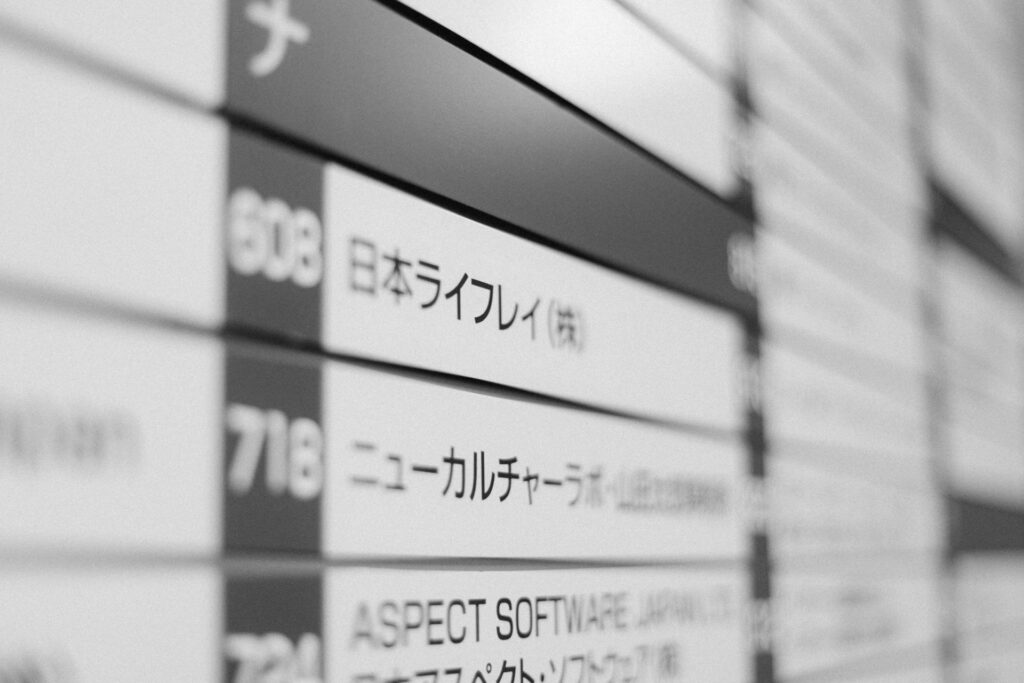Japan offers tremendous business opportunities with its stable economy, innovative technology sector, and strategic location in Asia. For foreign entrepreneurs looking to expand into the Japanese market, understanding the process, requirements, and key success factors is essential.
This guide walks you through everything you need to know about starting a business in Japan as a foreigner.
Straight from Tokyo
Can Foreign Companies and Entrepreneurs Start a Business in Japan?

Yes, foreign entrepreneurs and companies can absolutely start businesses in Japan. The Japanese government has made significant efforts over the past decade to streamline the process and attract foreign investment.
Foreign entrepreneurs have been increasingly drawn to Japan, with the number of business management visa holders more than doubling over the past ten years. This growth reflects both the attractiveness of the Japanese market and the government’s initiatives to make the process more accessible.
However, to legally operate a business in Japan as a foreigner, you must have the appropriate visa status. Not all residence statuses permit business management activities. Here’s a breakdown of visa situations:
Visa Statuses Permitting Business Management
- Permanent Resident or Special Permanent Resident
- Long Term Resident
- Spouse or Child of Japanese National
- Spouse or Child of Permanent Resident
- Business Management
- Highly Skilled Professional (i)(c) and Highly Skilled Professional (ii)
Visa Statuses Requiring Business Manager Visa
- Student
- Engineer/Specialist in Humanities/International Services
- Skilled Labor
- Dependent
For those without the appropriate visa status, there are several pathways available:
- Business Manager Visa (4-Month)
This allows you to enter Japan for the purpose of establishing a company. Once your business is set up, you can apply for an extension of stay up to 1 year. - Start-up Visa
Available in selected cities including Tokyo, Hiroshima, Aichi, Sendai, Fukuoka, Imabari, and Niigata. This visa is valid for 6 months and can be extended for another 6 months. - Investor Visa
Can be granted for 1, 3, or 5 years, depending on your business plan and investment. You can apply from outside Japan, but the process takes approximately 2-3 months.
The Process of Starting a Business in Japan
Starting a business in Japan involves several key steps. While the process has been streamlined compared to previous years, understanding each stage is crucial for a smooth establishment.
Step 1: Create a Business Plan
A thorough business plan is essential and should include these.
- Your business concept and differentiation strategy
- Revenue projections and financial planning
- Capital investment requirements and cash flow analysis
- Risk management strategies
Your business plan will not only guide your operations but is also required for visa applications and potential financing.
Step 2: Obtain Appropriate Visa Status
As discussed above, securing the right visa is critical. The timeline for obtaining a Business Manager visa typically takes 3-6 months, so plan accordingly.
Step 3: Secure an Office or Workspace
Having a physical business address is mandatory for registration. Virtual addresses are not acceptable for official registration purposes.
Short-Term Office Rentals (Serviced Offices)
- Flexible lease terms
- Prime business addresses
- Low start-up costs
- Access to furniture and equipment
- Management services included
Long-Term Office Rentals
- Greater customization possibilities
- Opportunity to establish brand presence
- Potential cost savings over time
Note that securing a lease can be challenging for foreigners without a Japanese resident status or guarantor. Serviced offices often have less stringent requirements.
Step 4: Establish a Company
The company establishment process includes the following.
- Select a Company Structure
Choose between Kabushiki Kaisha (KK), Godo Kaisha (GK), or other types (more on this in a later section). - Prepare Articles of Incorporation
This document outlines your company’s fundamental details including name, objectives, capital, and governance structure. - Obtain Inkan (Seal)
Several types of seals are required for official documentation- Personal seals (Jitsu-in, Mitome-in, Ginko-in)
- Company seals (Kaisha Jitsu-in, Kaku-in, Ginko-in)
- Notarize Articles of Incorporation
For KK companies, all articles must be notarized (50,000 yen plus 40,000 yen for revenue stamps). For GK companies, only revenue stamps require notarization (40,000 yen). - Deposit Initial Capital
For a Business Manager visa, a minimum investment of 5 million yen is typically required. This must be deposited in a personal bank account initially, as you cannot open a corporate account until registration is complete. - Register the Company
Submit all documents to the Legal Affairs Bureau (Homukyoku). Registration fees start at 150,000 yen for KK and 60,000 yen for GK. - Obtain Registry Certificate and Corporate Number
After registration, you’ll receive these important documents needed for contracts and bank accounts.
Step 5: Open a Corporate Bank Account
With your company registration complete, you can now open a corporate bank account.
- Sumitomo Mitsui Banking Corporation
- Shinsei Bank
- Seven Bank
- Japan Post Bank
Step 6: Acquire Necessary Business Licenses
Depending on your industry, you may need specific licenses or permits to operate legally. Examples include these.
| Industry | Governing Authority | Validity Period |
|---|---|---|
| Real Estate | Minister of Land, Infrastructure, Transport and Tourism or Prefectural Governor | 5 years |
| Construction | Minister of Land, Infrastructure, Transport and Tourism or Prefectural Governor | 5 years |
| Food & Beverage | Prefectural Governor or Mayor | 6 years |
| Worker Dispatching | Minister of Health, Labour and Welfare | 3 years (5 after renewal) |
| Travel Industry | Minister of Land, Infrastructure, Transport and Tourism or Prefectural Governor | 5 years |
Step 7: Register for Taxes and Social Insurance
File notifications with the tax office and social insurance agencies, including:
- Corporate tax registration
- Consumption tax registration
- Social insurance enrollment for employees
Key Success Factors for Starting a Business in Japan

Establishing a successful business in Japan requires more than just following the legal procedures. Understanding cultural nuances and business practices is equally important.
Understanding the Market
The Japanese market has specific preferences and expectations. Thorough research is essential to understand the below.
- Consumer behavior and preferences
- Competition landscape
- Market entry strategies
- Pricing structures
Building Local Partnerships
Forming relationships with local businesses can provide valuable insights and facilitate market entry.
- Joint ventures with established Japanese companies
- Distribution agreements with local partners
- Collaboration with industry associations
Cultural Adaptation
Adapting to Japanese business culture can significantly impact your success.
- Business etiquette is formal and precise
- Decision-making is often consensus-based and may take time
- Relationships and trust-building are paramount
- Communication styles tend to be indirect
Hiring Strategy
Having the right team is crucial.
- Consider hiring bilingual staff to bridge cultural gaps
- Understand Japanese employment practices and expectations
- Be aware of the lifetime employment culture in traditional companies
Funding Requirements and Financing Options for Japanese Businesses

Starting a business in Japan requires careful financial planning, both for initial setup and ongoing operations.
Initial Capital Requirements
The minimum capital requirements have been significantly reduced. A company can technically be registered with as little as 1 yen, but for a Business Manager visa, you typically need.
- 5 million yen investment for the business management visa
- Office rental deposits and fees (often several months’ rent)
- Registration fees (60,000-150,000 yen depending on company type)
- Notarization costs (40,000-90,000 yen)
- Professional service fees for accountants, lawyers, etc.
A realistic budget for establishing a company with a proper office and visa status would typically start at around 6-7 million yen.
Financing Options
Several financing options are available for foreign entrepreneurs in Japan.
Government Support and Grants
- JETRO (Japan External Trade Organization) provides various support services including office space subsidies
- Local government incentives, particularly in areas seeking economic revitalization
- Industry-specific government schemes, such as the JFSA Financial start-up support program
Private Financing
- Venture capital and angel investors
- Crowdfunding platforms like Campfire and Makuake
- Bank loans (though these can be challenging for new foreign businesses)
- Corporate partnerships and joint ventures
Start-up Loan System
The Japanese government offers a start-up loan system that foreign entrepreneurs can access, provided they have appropriate residence status. Loan repayment terms must generally align with visa duration unless there’s clear evidence of business sustainability.
Types of Company Structures in Japan

Choosing the right business structure is a critical decision that affects taxation, liability, governance, and operational flexibility. Below is an overview of the main company structures available in Japan.
| Company Type | Overview | Advantages | Disadvantages |
|---|---|---|---|
| Kabushiki Kaisha (KK) | Corporation/public limited company. Most prestigious business structure. | Strong market credibility, ability to issue shares, preferred for larger businesses | Higher setup costs, complex administration, less governance flexibility |
| Godo Kaisha (GK) | Similar to LLC. Simpler structure for smaller businesses. | Lower costs, fewer administrative requirements, operational flexibility | Less prestigious, harder to raise capital, less familiar to Japanese businesses |
| Branch Office | Extension of foreign company, not a separate legal entity. | Simple setup, no capital requirements, direct control from parent | Parent bears full liability, limited appeal to Japanese clients, potential tax issues |
| Representative Office | Simplest form, cannot conduct sales or revenue-generating activities. | Easiest and cheapest option, no corporate tax, good for market research | Cannot generate revenue, very limited activities, not for long-term operations |
Kabushiki Kaisha (KK)
The KK is equivalent to a corporation or public limited company and is the most prestigious business structure in Japan. It provides limited liability for shareholders and offers strong market credibility in the Japanese business environment. KK companies can establish complex governance structures and have the ability to issue different types of shares, making them attractive for companies planning significant growth or potential public listing.
In terms of requirements, there is technically no minimum capital requirement, though 5 million yen is typically needed if you’re applying for a business management visa. A KK must have at least one shareholder and one director, and the articles of incorporation must be notarized, adding to the setup costs. The registration fee for a KK starts at 150,000 yen.
The primary advantage of a KK is its strong market perception and credibility with Japanese businesses, banks, and customers. The ability to raise capital through issuing shares makes it suitable for businesses with expansion plans. It’s the preferred structure for larger businesses and joint ventures in Japan.
The main disadvantages include higher setup and maintenance costs compared to other structures, more complex administrative and reporting requirements, and less flexibility in governance structures. These factors can make KKs more challenging for small businesses or startups with limited resources.
Godo Kaisha (GK)
The GK structure is similar to a limited liability company (LLC) and offers a simpler alternative for smaller businesses. GK members enjoy limited liability protection while benefiting from a more flexible internal structure. Unlike KKs, GKs cannot issue shares, which affects how ownership is structured and transferred.
A GK has no minimum capital requirement and needs only one member to establish. There is no requirement for a resident director, and the articles of incorporation are simpler, with no need for notarization of the articles themselves (only revenue stamps need notarization). The registration fee for a GK starts at a more modest 60,000 yen.
The advantages of a GK include lower setup and maintenance costs, less stringent administrative requirements, and greater operational flexibility. These characteristics make GKs particularly suitable for small businesses, subsidiaries, and entrepreneurs looking for a streamlined structure.
On the downside, GKs are generally perceived as less prestigious in the Japanese market, which may affect relationships with traditional Japanese businesses or clients. It can also be more difficult to raise capital with a GK structure, and some Japanese businesses may be less familiar with the GK format, potentially causing hesitation in business relationships.
Branch Office
A branch office is not a separate legal entity but an extension of the foreign company. The branch can conduct full business operations in Japan while maintaining direct control from the parent company. The parent company bears full liability for all actions and obligations of the branch office.
Setting up a branch office requires no capital investment, but you must appoint a representative in Japan and secure an office address. The representative doesn’t need to be a Japanese national but must reside in Japan.
The advantages of a branch office include a simpler setup process compared to establishing a new company, no capital requirements, and direct operational control from the parent company. This makes it a good option for testing the Japanese market before committing to a full subsidiary.
The primary disadvantages are that the parent company bears full liability for all branch activities, potentially exposing the entire organization to risk. Branch offices may have limited appeal to Japanese clients and partners who prefer doing business with established Japanese entities. There can also be tax disadvantages depending on your global corporate structure and how profits are allocated.
Representative Office
A representative office is the simplest form of business presence in Japan but comes with significant limitations. It cannot engage in sales activities or generate revenue directly. Its functions are limited to market research, information gathering, and public relations activities.
The setup process is straightforward, requiring only an office address in Japan. Representative offices are not subject to corporate taxation since they don’t generate revenue, though they must still comply with other regulations such as those related to employment.
The greatest advantage is that this is the simplest and least expensive option for establishing a presence in Japan. With no corporate tax obligations and minimal regulatory requirements, it’s an excellent choice for market entry exploration and preliminary business development.
The significant disadvantage is that representative offices cannot generate revenue directly or conduct actual business operations. Their scope of activities is very limited, making them unsuitable for long-term business operations. Most companies use representative offices as a temporary stepping stone before establishing a more permanent business structure in Japan.
Minimize Risk with EPICs: Tokyo’s No-Code Innovation Partner
When starting a business in Japan, minimizing risk is paramount. This is where EPICs, one of Japan’s leading no-code development companies, offers a compelling solution.
Reduce Risk with No-Code Development
Starting a business traditionally requires significant investment in software development—a major risk factor for new ventures. EPICs enables you to test your business concept with minimal investment through no-code technology. With development starting at just $3,000 and turnaround times as quick as 2 weeks, you can validate your ideas rapidly before committing extensive resources.
Japan Market Expertise
As a Tokyo-based agency, EPICs specializes in developing applications tailored to the unique preferences of Japanese users. Their team understands the local market intricacies that are critical for success in Japan.
Comprehensive Marketing Support
Beyond development, EPICs provides comprehensive marketing support to ensure your business gains traction in Japan’s competitive market. From market research to execution, their team helps your application stand out to Japanese consumers.
Multi-Platform Expertise
EPICs excels across multiple no-code platforms including Bubble, Adalo, FlutterFlow, and STUDIO, selecting the optimal technology for your specific business needs.
With a portfolio of successful projects ranging from agricultural e-commerce platforms to healthcare matching services and custom business management applications, EPICs has established itself as a trusted partner for entrepreneurs looking to enter the Japanese market efficiently and affordably.
For entrepreneurs seeking to minimize risk while maximizing opportunity in Japan, EPICs offers the perfect combination of technological expertise, market knowledge, and support services to transform your business concept into reality.

Leave a comment